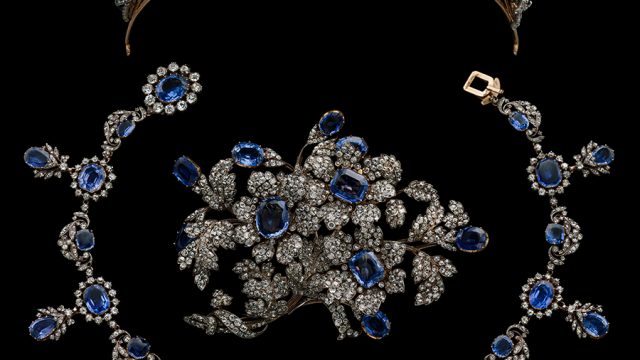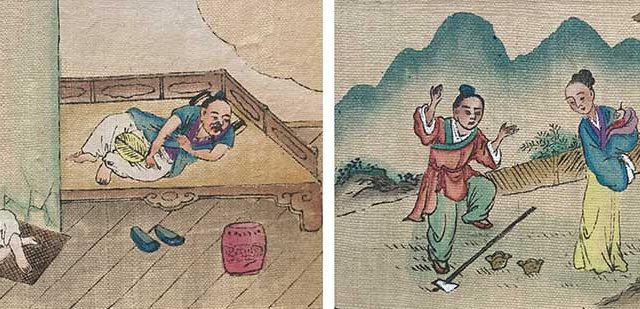A visual history of misogyny spanning over 2000 years – focusing on the pervasion of rape in society – is presented through written testimonies, historical archives, popular and traditional beliefs and photographs in the first UK exhibition of Laia Abril’s A History of Misogyny, Chapter Two: On Rape and Institutional Failure.
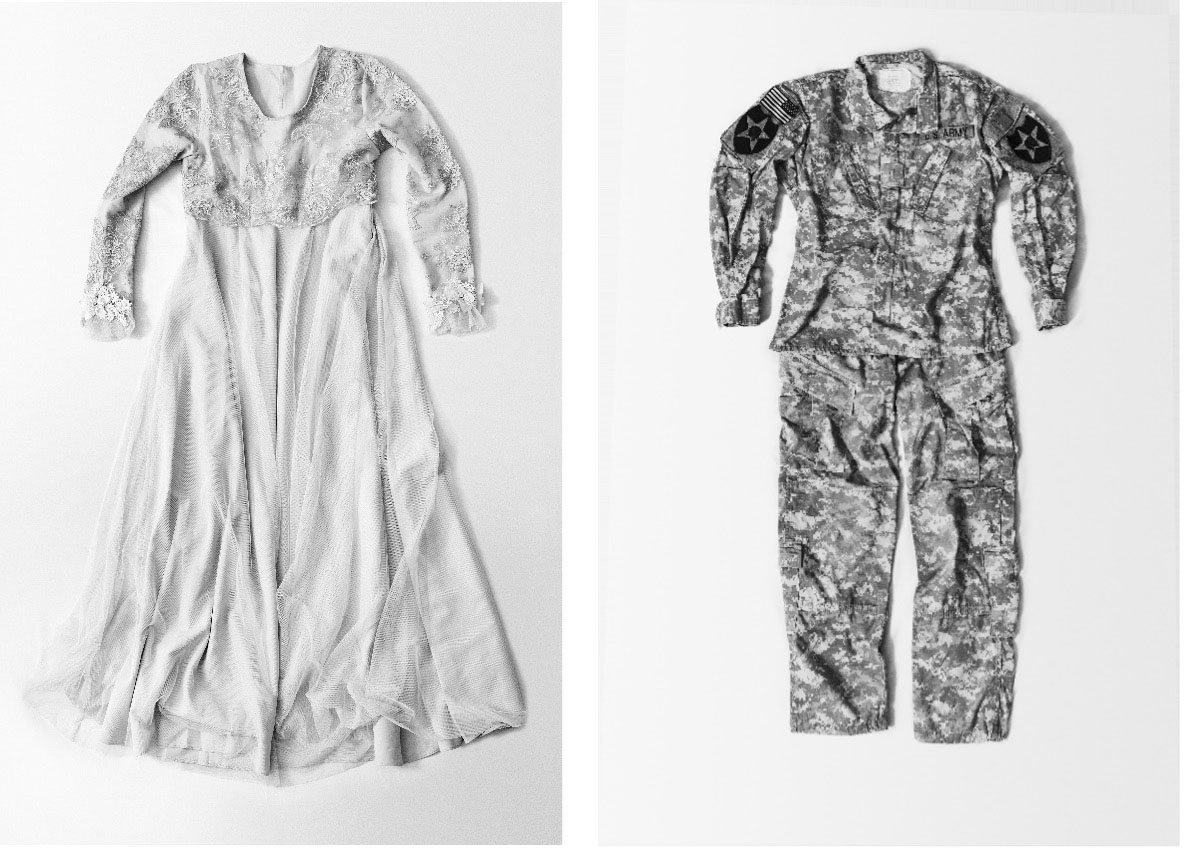
By looking back at history, I could identify gender-based stereotypes and myths, as well as global prejudices and misconceptions that have prevailed and perpetuated the culture of rape. Through painstaking research on the shortcomings of justice and negative attitudes of victim-blaming, this work is a personal analysis of cultural, social and political contexts around the world, that still normalise sexual violence.
Laia Abril
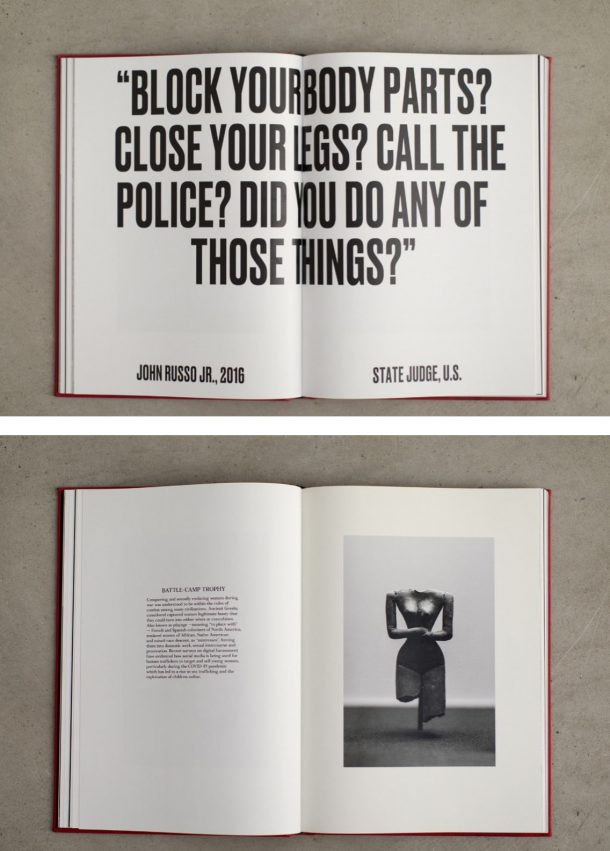
The images on display range from photographs of biblical rape maps to battle trophies, buildings which held rape camps, chastity belts and fear detectors. Contemporary, first-hand written testimonies are presented alongside black and white photographs of victim’s clothing, juxtaposed with victim-blaming quotes from figures of authority. Collectively, these images visualise the origins of gender-based violence, societal stigmas and the failing structures of law and order which continue to perpetuate rape culture.
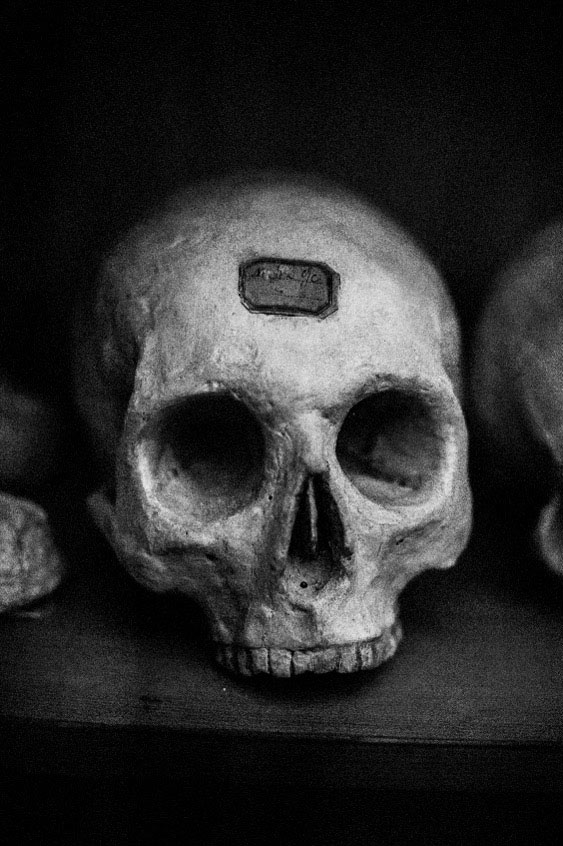
Through these photographs, data, curated objects and installations, the exhibition foregrounds rape as a weapon of war, the culture of forced marriage, the fake construction (or reconstruction) of virginity, privacy in the age of social media and the ‘rape schedule’; how women reconsider their daily routines to protect themselves from potential harm. The project draws together multiple examples, from biblical times to the present day, which evidence the systemic control of women and their bodies, and how ineffectual action from institutions has failed to protect or prosecute.
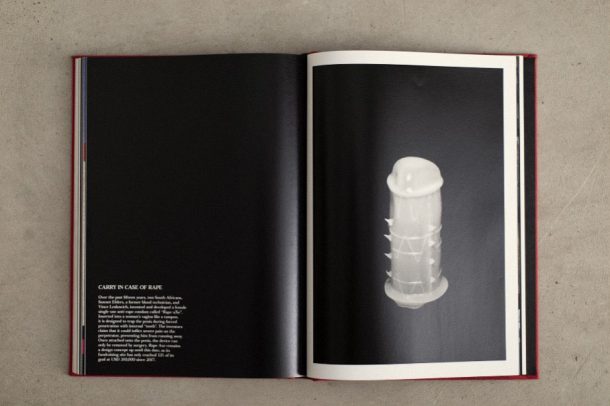
Abril was inspired to create On Rape and Institutional Failure by the ‘Wolf Pack’, a high-profile legal case in Pamplona, northern Spain, in 2016, that involved the gang rape of an 18-year-old woman by five men and the victim’s subsequent public shaming. The exhibition, and accompanying book, subvert the victim-blaming narrative, and instead examine the complicity of law enforcement, healthcare services and religious groups in protecting perpetrators and in cultivating the pervasiveness of ‘rape culture’.
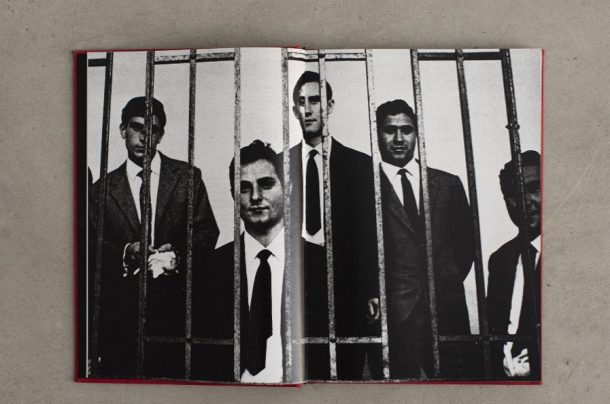
The exhibition and accompanying book (published by Dewi Lewis this autumn) is the second chapter of Laia Abril’s long term project ‘A History of Misogyny’; a visual research project which presents historical and contemporary comparisons of gender violence and access to justice, law and policy makers. Presented in collaboration with Photoworks and the V&A, as part of the V&A Parasol Foundation Women in Photography curatorial programme, the exhibition emphasises the V&A’s commitment to championing contemporary photography and supporting women in the arts.
A History of Misogyny, Chapter Two: On Rape and Institutional Failure
Laia Abril
10 – 27 November 2022, 10.00 – 18.00
Copeland Gallery, Copeland Park, 133 Copeland Rd, London SE15 3SN
Presented by V&A and Photoworks, as part of the V&A Parasol Foundation Women in Photography Project. Warning – This exhibition contains descriptions of sexual assault and rape.
The exhibition is accompanied by a public programme of events investigating the culture of shame and violence against women.
16 November
18:30 – 20:30
Laia Abril in conversation with Professor Joanna Bourke
Join Laia Abril in conversation with Professor Joanna Bourke, author of ‘Disgrace: Global Reflections on Sexual Violence’ and co-founder of SHaME, a research hub for scholarship on the interlinks between sexual violence, medicine and psychiatry presented by Birkbeck and Wellcome. This event will be a reflection on how the work challenges the gender-based stereotypes and myths which perpetuate rape culture and normalise sexual violence across different cultural, social and political contexts globally. Copies of Abril and Bourke’s new publications will be available and the authors will be on hand to sign or personalise.
23 November
10:00 – 11.30
Visualising Violence: Artist presentations with Nieves Mingueza and Lina Geoushy (In partnership with UAL’s Visible Justice programme)
Join Max Houghton, Course leader in MA Photojournalism and Documentary Photography at LCC as she leads a conversation with artists Lina Geoushy and Nieves Mingueza, highlighting their long term works exploring violence against women. Against the back drop of Laia Abril’s urgent work on the subject of sexual violence and institutional failure at the Copeland Gallery in Peckham, Geoushy and Mingueza will address recurring themes of anonymity, safety, censorship and silence. Both artists, award-winning recent graduates from the course at London College of Communication, will further consider the need to incorporate self-care as part of their practice.
15:00 – 17:00
Crafting Activism
The SHaME team hosts a zine workshop aimed at uncovering the historical uses of zines within anti-violence movements and providing a supportive space to create your own radical art in zine form. Zines have long been used by survivors of sexual violence to communicate their experiences, build community, and enact resistance. Join SHaME’s Allison McKibban for a brief history of zines in anti-violence movements, before creating, alongside Illustrator Erin Aniker, your own zine to take home.
18:30 – 20:30
Tanaka Mhishi book launch and Q&A
Join SHaME’s Dr George Severs as he interviews Tanaka Mhishi, author of ‘Sons and Others: On Loving Male Survivors’, a new introduction to the place of male survivors of sexual violence in discourses around rape culture. Sons and Others is a memoir of male survivor relationships, offering readers a glimpse into the lives of the one in six men living in Britain who have experienced sexual violence, and how the legacy of that violence shapes them as fathers, sons, partners and friends. Pushing back against an adversarial narrative of male vs female survivors, Sons and Others is an acknowledgement of the deeply intertwined personal relationships between all survivors, and offers a vision of a future that delivers justice and fulfilment for us all.
For ease, people can register for all events via: parasolwomenphoto@vam.ac.uk

